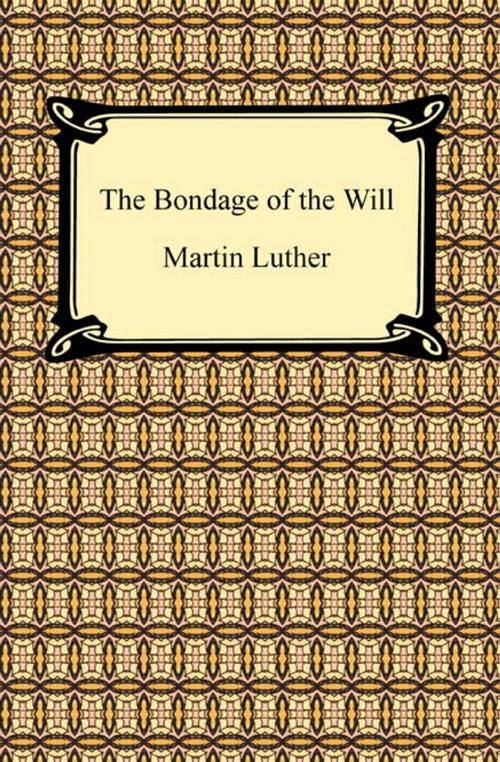| Author: | Martin Luther | ISBN: | 9781420936780 |
| Publisher: | Neeland Media LLC | Publication: | December 15, 2009 |
| Imprint: | Digireads.com Publishing | Language: | English |
| Author: | Martin Luther |
| ISBN: | 9781420936780 |
| Publisher: | Neeland Media LLC |
| Publication: | December 15, 2009 |
| Imprint: | Digireads.com Publishing |
| Language: | English |
Written in 1525 in response to the writings of Erasmus, "The Bondage of the Will" conveys Luther's beliefs on the issue of free will during the Protestant Reformation. Because of the fall of man, he debates with Erasmus on whether or not human beings are free to decide on good or evil. He asserts in this well written and uniquely styled work that we are incapacitated by sin, and human beings must rely on the complete sovereignty of God to redeem us and bring about our salvation. Because man is dictated by Satan, he must be saved entirely by God, and this liberation should lead to the service of God. Considered a masterpiece of Reformation literature, Luther's writing is a combination of deep theological thought with a gentle humor and a refreshing directness. Because of its primary position in Reformation doctrine, "The Bondage of the Will" is a vital link in understanding the ideas of Luther and his place in the Christian tradition.
Written in 1525 in response to the writings of Erasmus, "The Bondage of the Will" conveys Luther's beliefs on the issue of free will during the Protestant Reformation. Because of the fall of man, he debates with Erasmus on whether or not human beings are free to decide on good or evil. He asserts in this well written and uniquely styled work that we are incapacitated by sin, and human beings must rely on the complete sovereignty of God to redeem us and bring about our salvation. Because man is dictated by Satan, he must be saved entirely by God, and this liberation should lead to the service of God. Considered a masterpiece of Reformation literature, Luther's writing is a combination of deep theological thought with a gentle humor and a refreshing directness. Because of its primary position in Reformation doctrine, "The Bondage of the Will" is a vital link in understanding the ideas of Luther and his place in the Christian tradition.















